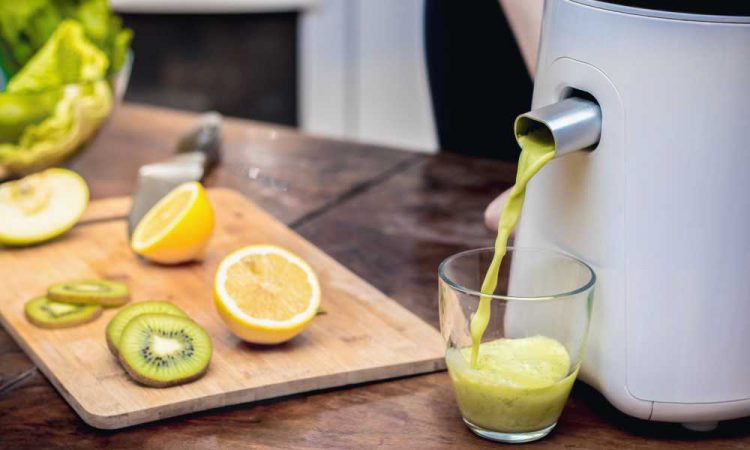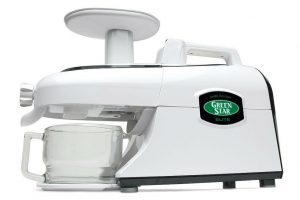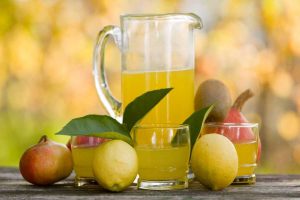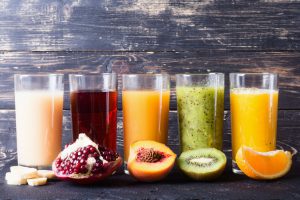Juicing has become very popular in the last few years with more people becoming aware of the health benefits that it can bring. Research does show that a diet high in fruit and vegetables can reduce many of the leading causes of early death such as heart attacks, blood clots, cancer and heart disease.
Doctors recommend that an adult should be consuming at least 9 servings of fruit and vegetables a day. Sadly, very few do. This is where juicing can come to the rescue. Not only does it allow you to squash most of your daily intake into a single glass it allows to consume a far larger variety of fruits and vegetables.
If you love your juice you’ll want to enjoy it while keeping it as healthy as possible. You may not know though that with a regular centrifugal juicer you’ll be missing out on a lot of those helpful nutrients and enzymes that can make a difference to your health.
This is especially so for those with a lowered immune system. If health is your main concern then a cold press juicer could be the solution you’re looking for.
What is a cold press juicer?
Also known as slow juicers, or masticating juicers, these are juicers that work in a very different way to standard centrifugal models. They use a masticating method that separates juice from the pulp of food produce in a way that preserves the nutrients. It’s able to do this because there is little to no heat involved in the process.
Centrifugal filters tend to have a lot of heat build-up when they function. This heat can damage the produce and remove some of its helpful properties. The more heat produced the more nutrients are lost. With a cold press juicer, you’ll be getting the very best from every shake you whip up.
Not to mention they also have a few other added perks like less preparation time, the ability to handle different types of produce and greater ease of use.
How does a cold press juicer work?
Unlike centrifugal juicers, which rely on pulverizing the produce together at high speeds, a cold press juicer spins and squeezes the juice out slowly. This masticating process is done through the use of an auger which does both the squeezing and crushing with little to no heat build-up.
This also results in shakes that are less frothy. Centrifugal models will suck air into the produce due to the spinning blade which results in this froth.
Another benefit of this design and the lack of heat build-up is that it causes less oxidization. Too much oxidization will cause the juice to break down and reduce the shelf life to a little as 24 hours.
By contracts, the juice produced by a cold press juicer can have a shelf life of up to 72 hours. This means you can get all your juicing done in one go rather than having to prep and blend every morning.
The difference between your juice and the one in the store
It’s worth making mention of what makes juice from your juicer different from that bought in a supermarket. Although we refer to the process as cold press the method is a little different from store-bought juice. These juices are made using hydrolytic presses that squeeze the produce through a fine wire mesh which removes most of the juice from the pulp. This is a true cold press process.
After this, the juice is bottled and stored in a large chamber. The chamber is then filled up with water which exacts a high pressure on the juice. This pressure forces pathogens contained in the juice to deactivate, allowing it to be stored for weeks and not days.
So, as you can see, our masticating juicer, while still referred to as a cold press juicer, is not truly one. This due though to the way the juice is bottled and stored under water pressure, not because of the way it is produced.
Why you should use a cold press juicer
First among the benefits of a cold press juicer is the increased nutrition you’ll be getting from every glass. The heat produced by the spinning blade can damage the vitamin C contained in your fruit, reducing the number of nutrients in your juice.
This is far from the only benefit though. While a cold press juicer is often a good deal more expensive than a centrifugal design, you’ll be saving money in other ways. This being because a cold press juicer can produce a far greater quantity of juice than a centrifugal could with the same amount of produce.
Cold press juicers can also produce far more juice from certain produce like leafy greens. Most centrifugal juicers aren’t good at juicing tough greens like spinach, Lettice or asparagus which means you’ll be missing out on a lot, especially if you love your greens.
The noise they produce, or rather the lack of it, can also be a plus. Cold press juicers are usually very quiet though there are exceptions. No need to be concerned about not hearing the phone ring when you fire up your morning shake.
Along with that, many cold press juicers are multi-functional and capable of making many other things like baby food, pasta, rice cakes, sauces and butters to name just a few. If the cost is a concern for you then it’s good to keep this in mind.
Be warned though that no two juicers models are every the same. Some models, like the Champion juicer G5-PG710, are limited in their multi-functional capability without the extra attachments. Without these, you won’t be able to properly juice leafy greens or grain. These attachments can add up to quite a bit extra so make sure you understand correctly what you’re buying.
Hopefully, this article has made things a lot easier to understand the difference between centrifugal and cold press juicers. With so many benefits available these make for a great addition to any modern home and will go a long way towards making you and your family much healthier.











